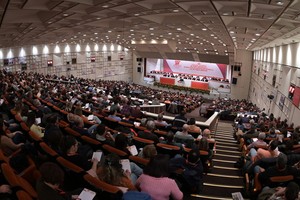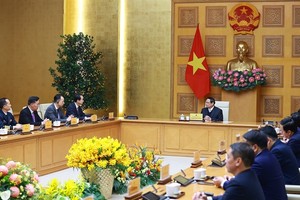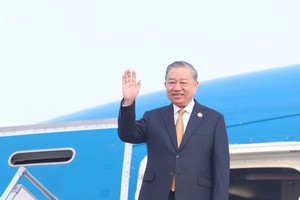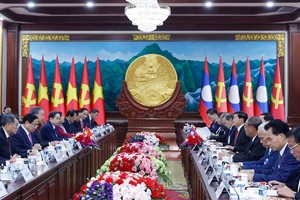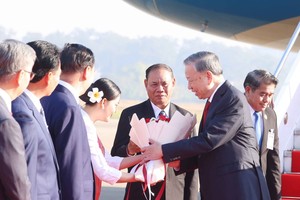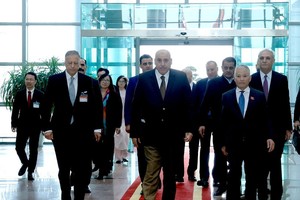BANGKOK, Jan 26, 2010 (AFP) - Governments must act decisively to prevent the extinction of tigers in Southeast Asia's Greater Mekong region, where numbers have plunged more than 70 percent in 12 years, the WWF said Tuesday.
The wild tiger population across Cambodia, Laos, Myanmar, Thailand and Vietnam has dropped from an estimated 1,200 in 1998 -- the last Year of the Tiger -- to around 350 today, according to the conservation group.

The report was released ahead of a landmark three-day conference on tiger conservation which opens Wednesday in the Thai resort town of Hua Hin, with ministers from 13 Asian tiger range countries attending.
It said the regional decline was reflected in the global wild tiger population, which is at an all-time low of 3,200, down from an estimated 20,000 in the 1980s and 100,000 a century ago.
"Today, wild tiger populations are at a crisis point," the WWF said, ahead of the start of the Year of the Tiger on February 14, according to the Chinese lunar calendar.
It cited growing demand for tiger body parts used in traditional Chinese medicine as a major factor endangering the region's Indochinese tiger population.
Infrastructure developments were also blamed by the report for fragmenting tigers' habitats, such forests being cut up by roads and converted into commercial crop plantations.
"Decisive action must be taken to ensure this iconic sub-species does not reach the point of no return," said Nick Cox, coordinator of the WWF Greater Mekong tiger programme.
"There is a potential for tiger populations in Vietnam, Laos and Cambodia to become locally extinct by the next Year of the Tiger, in 2022, if we don't step up actions to protect them."
Although Indochinese tigers were once found in abundance across the Greater Mekong region, the WWF says there are now no more than 30 tigers per country in Cambodia, Laos and Vietnam.
The remaining populations are mainly found in mountainous border areas between Thailand and Myanmar. But the WWF is calling on the ministers in Hua Hin to take action to double the numbers of wild tigers by 2022.
"This region has huge potential to increase tiger numbers, but only if there are bold and coordinated efforts across the region and of an unprecedented scale that can protect existing tigers, tiger prey and their habitat," said Cox.
Worldwide political efforts to secure the tiger's future will culminate in a Tiger Summit in September in Vladivostok, Russia, hosted by Prime Minister Vladimir Putin.
"There is an unprecedented opportunity to galvanise political will and action to turn the tide on wild tiger numbers," said Mike Baltzer, head of WWF's global tiger initiative.
"But to do this, we must stop the trade in tiger parts, rampant poaching, and secure the tiger's habitats."
